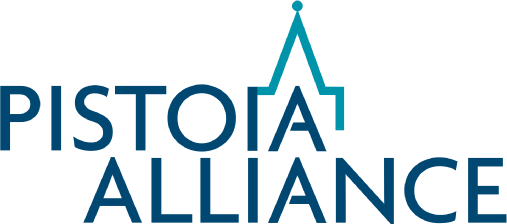Alliance calls on pharma companies and vendors to join the next phase and help fund expansion of new industry-standard ontology
Boston, October 30, 2025. The Pistoia Alliance, a global, not-for-profit alliance that advocates for greater collaboration in life sciences R&D, is launching Phase 3 of its Chemistry, Manufacturing and Controls (CMC) Process Ontology project. Supported by leading organizations including Eli Lilly, Amgen, ZS, Crown Point Technologies, Merck & Co., Inc, AstraZeneca, GSK and Johnson & Johnson, the new phase aims to solve one of the biggest barriers to digital transformation in life sciences – inconsistent, siloed experimental and process data that limit automation, technology transfer and AI adoption.
Recent results from the Pistoia Alliance’s Lab of the Future 2025 survey show that while 81% of labs use electronic lab notebooks (ELNs) and 77% expect to adopt AI within two years, nearly half (49%) still cite data standards and ontologies as a major gap preventing data from being fully FAIR and reusable. Without a shared semantic framework, information across R&D and manufacturing remains fragmented, requiring scientists to continually reinterpret and reformat data rather than focus on science.
“Data is the foundation for the next era of innovation in life sciences, and no single organization can solve the interoperability challenge alone,” said Dr Becky Upton, President of the Pistoia Alliance. “The strength of the Alliance lies in uniting our members from across the industry to create shared frameworks that accelerate digital transformation. AI and automation rely on structured, interoperable data, and through this next phase of the CMC Process Ontology we will deliver practical standards that make life sciences data AI-ready and interoperable from the lab through to manufacturing.”
The CMC Process Ontology creates a common language for describing how medicines are developed and manufactured. By defining processes and parameters in a consistent, vendor-agnostic way, it allows data from electronic lab notebooks (ELNs), laboratory information management systems (LIMS), and Manufacturing Execution Systems to be structured and shared across teams and technologies. Building upon the ISA-88/95 standards, it supports more efficient technology transfer, process analytics and AI-driven decision-making. Phase 3 will build on its existing coverages for small-molecule, biologic and synthetic processes, testing interoperability with vendor systems and releasing open resources to drive adoption. By standardizing how process data are described, it also improves repeatability, helping scientists reproduce and compare results across sites and systems facilitating technology transfer.
Building on the success of its initial proof of concept, Phase 2 of the CMC Process Ontology focused on extended the scope to achieve a comprehensive CMC process ontology for chemical, mAb, CAR-T manufacturing, capturing and defining all process steps, key process parameters and P-S-O-A (process, stage, operation, action) designations, and turning the framework into a production-ready resource. The team refined how process steps and parameters are defined, creating a standardized vocabulary that allows recipes to be written, understood and shared consistently across systems. This work laid the foundation for industry-wide data standardization and smoother integration between laboratory, manufacturing and automation platforms.
“Phase 2 gave us a strong foundation for making data interoperable across the industry. Phase 3 is about putting that work into action by expanding the ontology, testing it with real systems and building the framework to sustain it long term,” said Dr Birthe Nielsen, Project Lead, Pistoia Alliance. “Our goal is to make experimental and process data easier to reuse, share and trust across the industry. By improving data consistency, we also make experiments more repeatable and results easier to verify, as well as ensuring optimal process scale-up and optimization.”
The Pistoia Alliance is inviting pharmaceutical companies, technology vendors and research organizations to join Phase 3 as project sponsors and contributors. Participants will have the opportunity to shape an industry-wide standard for interoperable, machine-readable CMC process data, influence vendor roadmaps for digital lab systems, and accelerate the integration of automation and AI in R&D and manufacturing. The Alliance is already recognized as the home of ontologies for the life sciences industry, leading initiatives such as the award-winning IDMP Ontology project as well as having a dedicated ontology training program.
For more information or to get involved in the CMC Process Ontology project, visit https://www.pistoiaalliance.org/project/cmc-ontology/ or contact birthe.nielsen@pistoiaalliance.org.
– ENDS –
Media contact:
Spark Communications
+44 207 436 0420

